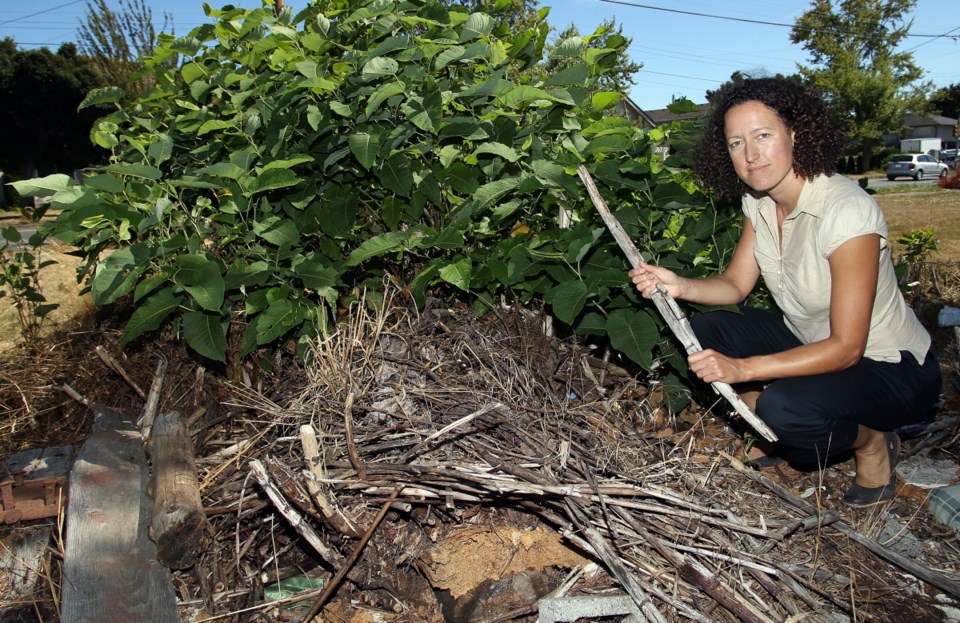A fast-growing, non-native plant that can damage roads and houses with its powerful roots is the target of a regional eradication campaign.
Knotweed, which resembles bamboo, has been known to grow through pavement, house foundations and drainage systems, and to harm fish and wildlife habitat. In parts of the United Kingdom, where it has become particularly widespread, it has led to mortgages being refused.
Problems with knotweed have developed in large part because people have planted it not knowing the harm it can cause, said Rachelle McElroy, executive director of the Coastal Invasive Species Committee.
The plant is considered one of the worst invasive plant species in the world, according to experts.
“It’s quite leafy and it grows quickly,” McElroy said. “It grows four centimetres a day, compared to a blade of grass which grows 15 millimetres a day.”
Her organization is part of a wide-ranging effort that includes the Capital Region Invasive Species Partnership, local governments and other groups intent on battling knotweed and other unwanted plants. McElroy said the anti-knotweed campaign began in 2012. As part of its pilot project, 33 sites were treated.
McElroy said she doesn’t know of any garden centres where knotweed is available, but it could still find its way to gardeners.
“There are no regulations in Canada preventing the sale of knotweed,” she said.
The plant is not yet fully established in the capital region, so it is important to act now, McElroy said. She said some of the key features to look for in identifying knotweed are its hollow stems — reddish-purple in colour and speckled — bamboo-like nodes and distinct flowers that form a small, white-green cluster.
Knotweed is killed by injecting it with a diluted solution containing the herbicide Roundup.
“It’s contained right within the plant, the reason being is that the plant actually spreads by its roots,” McElroy said.
Injecting the solution gets it to the plant’s roots and prevents the herbicide from spreading.
Knotweed should not be cut down or composted.
“Once a stem is free it can resprout into a new plant,” McElroy said. “You need less than a fingernail in size and it can resprout.”
Anyone who sees a plant they believe to be knotweed should email [email protected] or call 250-857-2472. Free treatments are available through the early fall.



